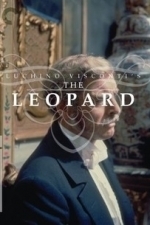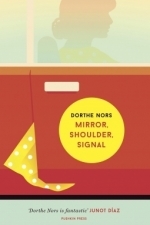
The 10 Best-Ever Anxiety Management Techniques Workbook
Book
Brimming with exercises, worksheets, tips, and tools, this how-to workbook is the much-anticipated...
Martin Scorsese recommended The Leopard (1963) in Movies (curated)

Daily Yoga App - Yoga for beginners, Yoga poses
Health & Fitness and Lifestyle
App
Yoga is good for health and meditation and the daily yoga app lets you learn about the different...

Zodiac Touch - psychic reading
Lifestyle
App
FREE Live Chat & Calls with a Psychic Advisor or Astrologer. Zodiac Touch is the place where you...

Brainbuddy for iPad - Porn & Masturbation Addiction
Health & Fitness and Lifestyle
App
Addicted to Porn and Masturbation? Reboot your brain. Reboot your life. Brainbuddy is designed to...

Deep Sleep with Andrew Johnson HD
Health & Fitness and Lifestyle
App
This application is a guided meditation intended to help you overcome insomnia and get to sleep. ...

Radio Pro HQ
Music and Entertainment
App
"Radio Pro HQ" is a modern internet radio receiver that enables you to listen lots of internet radio...
Sophia (Bookwyrming Thoughts) (530 KP) rated Coral & Bone in Books
Jan 23, 2020
When reading the synopsis and first starting out the book, I thought Coral & Bone would be promising Sirens! Mermaids are the bad guys! How cool is that!
Problem? Early on in the book, I could already tell like I can with most books this would not go very well. The writing feels a bit choppy.
<blockquote>She was going through bookstore withdrawals and losing her sanity at the same time. She would have to try and persuade her mom to take her to Portland soon. If she could just nestle between the aisles of books, get lost for few hours, she might be able to harness some of these crazy new feelings she had been experiencing.</blockquote>
Think of a river, or any type of water source. If the water is choppy, it doesn't really bear a good sign. But if the water flows, it's pretty calm. It's precisely how I felt with Duane's writing. It just didn't seem to go really well and I felt as though I were reading a sample from a grammar book. "Sophia did this. Sophia did that. Sophia flipped. Sophia pouted. Sophia expressed her dislike."
<img src="http://4.bp.blogspot.com/-O2UQC1S43r4/VCDMO-p0xiI/AAAAAAAAD3I/_ZPjiz-LnPs/s1600/Throw%2BOut%2Ba%2BWindow.gif"; border="0">
BORING. Thing is, I'm not exactly one to give up on a book when it's just 4%. In fact, I personally thought I was a bit drained out... especially from Puritan readings (it's quite the brain exercise if you ask me). Except... it gets worse.
It's CONFUSING. If there's one thing I really dislike, it's people not giving me clarification. Please. If a math teacher doesn't teach you clearly how to do a problem, how do you pass a math class with a passable grade? But goody gumdrops, does Duane confuse me.
<blockquote>She discovered, through meditation, that she was able to speak to her mom. Are you still there? Mom?</blockquote>
If her mom's throat got slit and she's dead, how is Tage able to speak to her mom, even if it's through meditation? Is her mom a ghost? Is Tage just thinking about what her mother would say if she were still alive?
<blockquote>"They took the bait."</blockquote>
What bait? You would think that as Tage and Daspar are working together toward a common goal, Daspar would reveal what the bait would be. He doesn't. What the heck?
<blockquote>"After he consumed Puras soul he was different."</blockquote>
Eh? Whoa whoa whoa. When did we enter sucking your soul out zone? How does one do that exactly, and why did Daspar do it? Protection? Did Pura sacrifice herself?
<blockquote>Remember I told you the Elosians didnt like sirens?</blockquote>
Wait a minute. Wait a minute. If Etlis is for shifters and humans stay on Earth, yet Elosians don't like Sirens, where do Sirens live? Are they immigrants? Migrants? The world building has a good start, but it's too confusing to be a fully developed world.
<blockquote>"When Natalie died
Went missing, Pepper chimed in.
Died, Catch said.
Halen looked to Dax. Is she dead or alive?
We dont know for sure. We havent found her body, but that doesnt mean the hunters didnt destroy it.</blockquote>
Goodness, even the characters are confused. "Where's Natalie? Where's Natalie? Where's Natalie?" "Oh, let's just throw Halen in and see how she does and go from there because we're not sure if Natalie's alive or not!" What happens if Natalie really is alive? Ping, pong, let's have a sister fight!
<img src="http://3.bp.blogspot.com/-rFkaK8GKFOE/VCDMTJnhFsI/AAAAAAAAD3Q/1Xq3NVQhCXM/s1600/i%2Bcan't.gif"; border="0" height="179" width="320">
And speaking of Halen, our main character, I have quite the complaint about her as a character.
For fun, I pretty much thought her name was Haden. Funny, because I actually read The Shadow Prince and what do you know? Haden's the main character (well, one of them).
It's probably even a coincidence they have similar personalities and are all mopey. "I can't do this! I give up! Blah blah blah!" It's all acceptable for the first book... usually. It becomes quite the problem if the character cries wolf quite loudly. Ahem... their bark is apparently bigger than their bite.
But here's one positive aspect: Halen isn't a quitter. Despite the fact she's completely frustrated all the time, she continues.
Unfortunately, it was pretty much the only thing about Coral & Bone I liked. When that happens, especially at around 60%, it pretty much means all hope is lost and I should move on.
With all that said, you don't really want to waste your time with Coral & Bone unless you're looking for a book that confuses you. Perhaps with major tweaks, Duane's latest work would certainly be one you wouldn't want to simply pass by. But no, that's not the case.
-----------------
Review copy provided by the author originally for the blog tour
Original Rating: 1.5 out of 5
Original review posted at <a href="http://bookwyrming-thoughts.blogspot.com/2014/10/dnf-review-coral-and-bone-by-tiffany-duane.html">Bookwyrming Thoughts</a>
Hazel (1853 KP) rated Mirror, Shoulder, Signal in Books
Aug 7, 2017
Shortlisted for The Man Booker International Prize 2017, Mirror, Shoulder, Signal is a piece of Danish literature by Dorthe Nors, translated into English by Misha Hoekstra. It has a tragicomic nature, introducing the 40-year-old Sonja, a woman who is trying but failing to move in the right direction.
Sonja is the type of character full of flaws that readers will recognise in themselves. Although she has successfully become self-employed, translating crime novels from Swedish into Danish, Sonja feels she has not accomplished anything in life. Despite one unlucky attempt at love, Sonja has remained single, moving to Copenhagen in an attempt to find herself. Determined to earn her driving licence Sonja braves the lessons in the busy city, however, she cannot handle gear changes. In other areas of her life, she tries weekly massage therapy and attempts a meditation exercise. Unfortunately, Sonja remains apathetic to the whole scenario and would rather be somewhere warm eating cake.
Mirror, Shoulder, Signal is a cleverly crafted title that makes repeat appearances throughout the narrative. The three words are instructions that Sonja repeats as a mantra each time she pulls away from the curb in her instructor’s car. The majority of the book takes place during these lessons, or, if not there, face down on Ellen’s massage table.
Sonja’s narration constantly varies between the present and memories from her childhood. A particular focus is the recollection of events involving her sister Kate. They may not have been close when they were young, but now it is almost impossible for Sonja to contact her sister. It is as though Sonja has been alienated from her own family.
Embellished with sexual innuendos, poor attempts at humour fail to bring any excitement to the story. There is no clear plot. At the beginning, readers may wonder if she will earn her driver’s licence – she does not – find love – she does not – find herself – she does not. What, then, was the point of this novel? Apart from a suggestion of future happiness in the final chapter of the book, there is no sense of resolution.
The issue with some translated stories is the loss of original intent and meanings. This does not seem to have been much of a problem in this instance; however, the translator has not been entirely successful in converting the Danish into a naturally flowing English.
Overall, Mirror, Shoulder, Signal is a bit of a disappointment, especially because it has been shortlisted for such a prestigious prize. Since the prize is meant to be awarding the author for continued creativity and contribution to fiction, it makes you wonder what critics saw in this novel to believe it stood a chance at earning the honour.
Hazel (1853 KP) rated Mirror, Shoulder, Signal in Books
Dec 7, 2018
Shortlisted for The Man Booker International Prize 2017, <i>Mirror, Shoulder, Signal</i> is a piece of Danish literature by Dorthe Nors, translated into English by Misha Hoekstra. It has a tragicomic nature, introducing the 40-year-old Sonja, a woman who is trying but failing to move in the right direction.
Sonja is the type of character full of flaws that readers will recognise in themselves. Although she has successfully become self-employed, translating crime novels from Swedish into Danish, Sonja feels she has not accomplished anything in life. Despite one unlucky attempt at love, Sonja has remained single, moving to Copenhagen in an attempt to find herself. Determined to earn her driving licence Sonja braves the lessons in the busy city, however, she cannot handle gear changes. In other areas of her life, she tries weekly massage therapy and attempts a meditation exercise. Unfortunately, Sonja remains apathetic to the whole scenario and would rather be somewhere warm eating cake.
<i>Mirror, Shoulder, Signal</i> is a cleverly crafted title that makes repeat appearances throughout the narrative. The three words are instructions that Sonja repeats as a mantra each time she pulls away from the curb in her instructor’s car. The majority of the book takes place during these lessons, or, if not there, face down on Ellen’s massage table.
Sonja’s narration constantly varies between the present and memories from her childhood. A particular focus is the recollection of events involving her sister Kate. They may not have been close when they were young, but now it is almost impossible for Sonja to contact her sister. It is as though Sonja has been alienated from her own family.
Embellished with sexual innuendos, poor attempts at humour fail to bring any excitement to the story. There is no clear plot. At the beginning, readers may wonder if she will earn her driver’s licence – she does not – find love – she does not – find herself – she does not. What, then, was the point of this novel? Apart from a suggestion of future happiness in the final chapter of the book, there is no sense of resolution.
The issue with some translated stories is the loss of original intent and meanings. This does not seem to have been much of a problem in this instance; however, the translator has not been entirely successful in converting the Danish into a naturally flowing English.
Overall, <i>Mirror, Shoulder, Signal</i> is a bit of a disappointment, especially because it has been shortlisted for such a prestigious prize. Since the prize is meant to be awarding the author for continued creativity and contribution to fiction, it makes you wonder what critics saw in this novel to believe it stood a chance at earning the honour.


